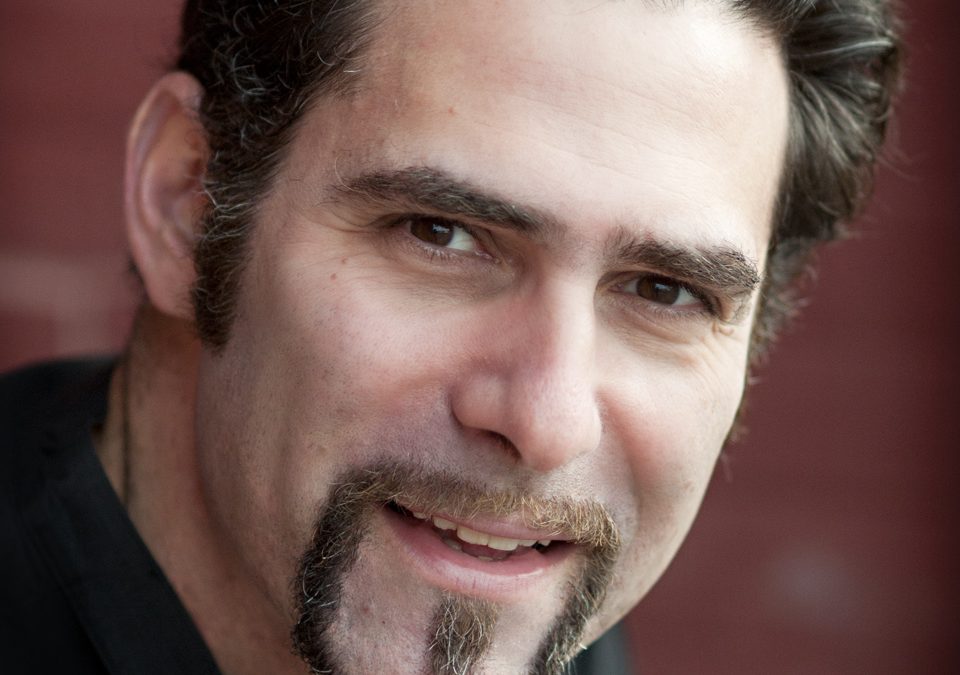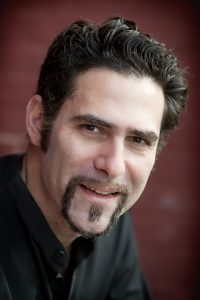 As noted here before, every professional editor has their own focus, their own style, and their own process for how they help writers take a lump of coal into a shiny diamond. This week, I sat down with the estimable Stuart Horwitz, the founder of Book Architecture, to learn how a man with an MA in Eastern Asian Studies from Harvard became one of the most sought after book editors and ghostwriters in the business.
As noted here before, every professional editor has their own focus, their own style, and their own process for how they help writers take a lump of coal into a shiny diamond. This week, I sat down with the estimable Stuart Horwitz, the founder of Book Architecture, to learn how a man with an MA in Eastern Asian Studies from Harvard became one of the most sought after book editors and ghostwriters in the business.
Open Mic: You have a Master’s degree in Eastern Asian Studies from Harvard. How in the world did you become an independent editor?
Horwitz: I have two master’s degrees. The first one is in literary aesthetics from NYU and that is probably the degree that I use most frequently in my work. But anybody that’s an independent editor got here through a convoluted path. I’ve worked many different fields. I was a wedding planner. I trained as a mortician. I was going to be a professor of Japanese Buddhism. But this career as an independent editor and ghostwriter just wouldn’t leave me alone, so it became my destiny. That might be strong but I’m going with it. It’s been a job that has allowed me great flexibility and that has been remunerative, but the best part is all the people I’ve gotten to meet and everything I’ve gotten to learn, which is far outside of any scope of the normal academic path. Books on art and cooking and politics and science and health and fiction and genre fiction, and it’s been an amazingly connecting experience to the world.
Open Mic: You are also a writer, with several books to your credit. How does that experience impact how you approach editing someone else’s work?
Horwitz: Writing for writers is not for the faint of heart. Writers are blessed with two sides of a coin – one side is that we’re all insecure about whether we’re getting published or by who and how many copies we sell, and this other side is feeling that we know what we’re doing. And when you are trying to communicate with writers about strategy for process, revisions or structure you have to make sure to do it with respect and open-endedness. I’ve proposed this method for revision in my three books that works for some people and doesn’t work for others. Some people say it changed their life; other people say it’s just not the way their brain works. Through my analysis of works that I’ve edited over the last 20 years I have seen a lot of strategies that work and strategies that don’t, so hopefully I’m able to apply those to my own writing. They say that the best education for a writer is to read. Well, in my job I’ve been reading consciously for a few decades now so I guess in that way it’s really been helpful.
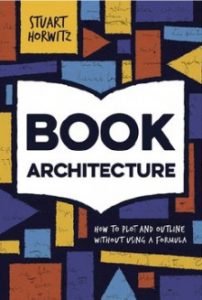 Open Mic: At what point in the process should a writer be looking for a developmental edit? Is there a general guideline for that?
Open Mic: At what point in the process should a writer be looking for a developmental edit? Is there a general guideline for that?
Horwitz: My general guideline is when the first draft is complete. It may be repetitive, may not have an ending, or may go in a whole bunch of different directions, but that’s when you bring the editor in. An editor is somebody who you need to have chemistry and rapport with and that you’re able to trust. That’s the person you invite over well before the party starts. Like when you get there four hours before you’re having a party and the hostess says, “I’m not dressed and the kitchen is a mess” and the editor says “that’s great, you go get a shower and I’ll do the kitchen.” There is no judgement there. I think sometimes with writing critique groups, if you’re bringing in people who are not trained or don’t have the experience you can hear things that are not helpful that can send you in directions that are not going to be fruitful. I generally think those types of situations are best for after your second draft when the material has gotten some internal backbone and can handle some of the random commentary that people can throw out there. And the editor at the end of the first draft is someone who has a system in place, who’s got a lot of experience and has a way of talking neutrally so that it helps the writer further discern his or her goals and how they are being met rather than a lot of evaluations which people who don’t do this a lot tend to deliver.
Open Mic: What kind of questions should somebody who is considering hiring an independent editor ask – both of themselves and of the potential editor – before they hire that person?
Horwitz: Ideally an editor will have a well-established website in which you can get a lot of your basic questions answered. Does this person have some kind of track record? Does she or he work in the genres I work in? But the world of the independent editor is a little bit like the wild west, so you’re really looking for fit. It’s often not the specific questions as much as getting on the phone with someone and getting a feel for them. This is why whenever a prospective client comes to me, I always suggest we get on the phone. We don’t just do it over email because as an author you are letting a lot of yourself out onto the page with this person. It’s unfinished and it could be very personal, so you want to feel there is resonance. The other thing is you want to make sure the editor you work with has a process. For example, if somebody comes to me and says, “I finished my first draft and I heard that’s when I should come to you. It’s 58,000 words and it’s a mess.” From there I could say, ‘I’m going to read and review that comprehensively and then write a seven- to 10-page critique that I can share with you, and then we’re going to discuss that for an hour and a half to two hours. It will have two different sections, one with broader categories and the other with specific page numbers that tether those observations to instances you know.’
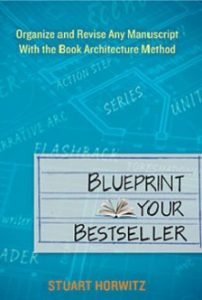 Open Mic: What kind of turnaround time is the norm for the kind of service you provide?
Open Mic: What kind of turnaround time is the norm for the kind of service you provide?
Horwitz: I generally lean toward two to three weeks. Sometimes it goes longer based on the length of the project or my current calendar. One of the things about being an independent editor is some weeks you are working 30 hours a week and some weeks you are working 70. You just have to accept that the business is what the market will bring you, and people are usually looking for help right now.
Open Mic: With fiction, do you see more problems with character development or story development?
Horwitz: Probably character development. That is likely because many fiction attempts are really disguised non-fiction, and they could even be disguised to the author. And because the novelist is writing a character that is like her mother, this character does not come alive, does not have to answer for her excesses, does not enter the action when she does something she can never take back – the stuff of fiction – because there is still this allegiance to this character who happened to be based on the narrator’s mother. There are some fiction writers who enter a world of imagination and don’t have this problem, but the majority of fiction writers are making a transition from their experienced reality into what they want to have happen in their imaginative worlds, and that transition can be a little bumpy. It can be done, of course, but it involves not just writing but also analyzing what you have and being honest with yourself, and then writing more as you do that breaking away. Because at the end of the day it’s always our values and our wish fulfillment that is on display.
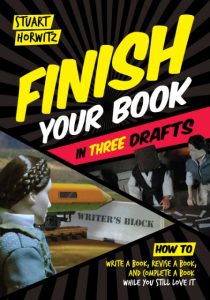 Open Mic: Platform is so important to nonfiction authors, but not every writer with a great idea also has that platform. Is that something you can help an author overcome?
Open Mic: Platform is so important to nonfiction authors, but not every writer with a great idea also has that platform. Is that something you can help an author overcome?
Horwitz: There are editors that specialize in platform building and there are PR people in the industry who help with platform building. I don’t generally do a lot of help with platform building unless it’s platform extension. If a book is coming out and we need to write seven blogs in support of publication day, I will help edit those because I’m so steeped in the material. But it’s true what you say about platform, and the causes of this run very deep. Our entire society has changed how we consume information. What the non-fiction writer needs to know is that demonstrating a platform shouldn’t be an irritant. You should have a platform if you want to write in a certain area, and you should be wanting to develop that, you should be wanting to place smaller pieces or connect with groups on social media who are interested in your topic and engaging with others in the places your subject is being discussed. That should be something you want to invest time in.
Open Mic: Have you ever had to fire a client? If so, can you tell me why?
Horwitz: By fired a client I’m presuming you mean issuing a complete refund and bow out of the project, right?
Open Mic: Yes.
Horwitz: I’ve been in business for 20 years and I would say I have fired a client once a decade. And in both of those cases these clients were what I would describe as toxic. A toxic client is someone who does not have respect for the job the editor is doing. They don’t respect that this is his or her livelihood, that they have a process, there is a time frame, and that communication should be reasonable and professional. In one case it was just a constant stream of texts and browbeating and attempts at emotional abuse. I’m a grown person and I can defend myself, but the way I chose to defend myself in those situations was saying this isn’t going to work. Now that’s different from a client getting upset or there being miscommunication or there being some kind of challenge as far as what was delivered and what was expected. Those kinds of things happen all the time in life and can be worked through if people are able to communicate and take responsibility and work to fix any kind of rift. A very early client said she was a psychic and was writing a book on something I’ll call the opposite of Feng Shui – sort of where you put your stuff is where the flow will come as opposed to figuring out the Chinese art of divination and then placing your stuff based on that. She would contact me constantly. I’m dating myself here, but she would like call my beeper four times in an hour and say, “Where are you, you said you would be available for me.” And I was thinking, first of all it’s a beeper so you’re not going to get me in person. And then also you’re a psychic – don’t you know where I am? I gave her a full refund and the manuscript back and said ‘I don’t know what you’re looking for, but this is not the kind of relationship I want to be in.’
Open Mic: Do you ever get clients sent to you by an agent or a publisher?
Horwitz: Yeah, for sure. An agent would likely be before the sale. Because of all the shifts in publishing, agents don’t tend to do a lot of editing right now. They expect the writer to either have the ability themselves or to hire a developmental editor to edit the novel or non-fiction book proposal into the kind of shape that’s salable. Publishers have become a good source of referral mostly over the last five years. All the changes in the industry have left editors as independent contractors or with a skeleton staff. I got a call from Simon and Schuster three weeks ago that said they needed someone to edit a book because the person who was doing it was going on maternity leave and they didn’t have the sort of reserves that they used to have to be able to pass it off to somebody else. I also sometimes get brought in by publishers because I have a specialty in getting it done. There is a publisher who has brought me in a few times now after I was hired for a very high-profile project with a woman who was a nationally known expert in her field – so well-known that her first name is an answer in a New York Times crossword puzzle. That project had been going on for nine years – nine years! – and they said we basically need this done in three months or we’re going to have to fire this author. We got it done.
Open Mic: You do ghostwriting as well. How does that process work? Is it different for every situation, or is there a standard process you go by?
Horwitz: I like to say these circumstances exist on a continuum. Developmental editing is at one end of the spectrum, and ghostwriting is at the other with something like co-writing in the middle. The developmental editor is going to be more of a coach – more responsive, putting comments on the page or writing a critique, being a brainstorming sounding board. The ghostwriter is somebody who is going to take material and really craft it from scratch, which would seem completely different but it’s really more a matter of who is doing the heavy lifting. The process I do as a ghostwriter is generally to give the author assignments. Sometimes they’re writing me emails, and sometimes they’re just writing bullets and then we do a recorded interview. We transcribe it, and then I’m doing the heavy lifting – the cutting and the pasting and the shaping and the writing of things to be smooth – and then they become the editor. So I think to make the leap from developmental editor to ghostwriter is not quite as random as it might seem because most editors are also writers. It’s just using those fitting skills and having some confidence that those skills can be used on a bigger stage. That’s the challenge.
Open Mic: Self-publishing has come a long way over the last decade. That’s good in many ways and not so good in others. In your opinion, has self-publishing done more to help or hurt writers?
Horwitz: My first book was traditionally published, my second and third books were independently published and my fourth book is going to be traditionally published, so I have seen this from both sides. There are excellent reasons to independently publish a book, and the second one was probably my favorite. My first book was published by Penguin, and we were having some differences of opinion on what my second book should be about. I really wanted it to be about this particular aspect of my theory because this was what everyone had been asking me about. They said they really didn’t think that’s what I should do. I said I would like it to be in color because we’ve got these incredible graph diagrams, and they said, “Yeah, we’re not going to do that.” And then my editor actually left Penguin to come work with me at Book Architecture as part of the big changes that had been taking place here, so I was done. So I think it partly depends on what your expectations are. For me, continuing to develop my method and wanting to reach people and having audiences that I can connect with and sell to gave me the confidence to do that. But to your question, I do think sometimes people see self-publishing as a fall back plan and that’s probably a mistake because that means people say “if I can’t find an agent I will self-publish.” Well, if you can’t find an agent it might be that the project needs some overhaul. It’s not like it’s going to succeed if you just plug it right in to self-publishing. When people rush it into self-publishing, they don’t do things like solid copy editing or putting time into their cover design. Then they sort of seal their own fate.
Open Mic: If you had to give writers one piece of advice, what would it be?
Horwitz: It’s really just one piece of advice: never give up. It’s like the sub set of a Venn diagram. The circle of people that don’t make it inside that circle is a smaller circle of all the people who give up. If you give up you’re done, so if you don’t give up then you still have the possibility that your personal evolution and development as a writer – your karma, or whatever the mystical components of when people get discovered or embraced – still has a chance to line up with societal tastes and become your moment or moments. But if you give up then the whole thing is done, so just don’t give up.
 Open Mic: I like to end with what I hope is a fun question. Let’s say I can put you together with just one of the following three people for a good conversation. Who would you choose and why? Your options are: the great writer and teacher E.B. White, the famous chef James Beard or former First Lady Laura Bush.
Open Mic: I like to end with what I hope is a fun question. Let’s say I can put you together with just one of the following three people for a good conversation. Who would you choose and why? Your options are: the great writer and teacher E.B. White, the famous chef James Beard or former First Lady Laura Bush.
Horwitz: I’m going to go with E.B. White, which is probably not a surprise given how The Elements of Style has trickled down through the Chicago Manual of Style, the publisher for my next book, and just feeling like we could talk about how to make books like these. I’m not putting myself in the category of either of those books, but one thing I do appreciate about both is that they’re funny and they’re having fun with it and trying to make it enjoyable, and that is really what I’m trying to do. In the new book I talk about how much you charge as an independent editor and how you host a ghostwriting recorded interview, so there’s a lot of nuts and bolts. But there are different ways of saying those things. If you say it with a little bit of voice and humanity and cleverness, it makes the whole journey more enjoyable for the reader and for the person who is really trying to get better. I would want to talk to him about some of the sly jokes that he put into the Elements of Style that we may not even know are in there.

